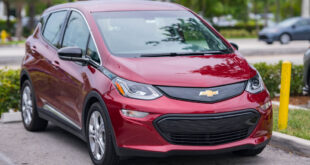Electric Car Range: Maximizing Distance and Efficiency. Electric cars are becoming increasingly popular due to their environmental benefits and lower operating costs. One of the critical factors influencing their adoption is the range they can cover on a single charge. This comprehensive guide explores everything you need to know about electric car range, from understanding the basics to maximizing efficiency and addressing common concerns.
Section 1: Understanding Electric Car Range
1.1 What is Electric Car Range? Electric car range refers to the distance an electric vehicle can travel on a single charge before needing to recharge its battery. It’s a crucial consideration for potential buyers comparing different models.
1.2 Factors Affecting Electric Car Range Several factors influence this car range, including:
- Battery Capacity: The size and type of the battery significantly impact range.
- Driving Habits: Aggressive acceleration and high speeds can reduce range.
- Weather Conditions: Cold temperatures and the use of heating or cooling systems affect battery performance.
1.3 How Electric Car Range is Measured Range is typically measured in miles or kilometers per charge. Understanding the difference between EPA ratings and real-world performance helps manage expectations.
Section 2: Maximizing Electric Car Range
2.1 Driving Efficiency Tips
- Smooth Acceleration and Braking: Avoid sudden stops and starts.
- Use Eco Mode: If available, eco-driving modes optimize energy use.
- Maintain Optimal Tire Pressure: Properly inflated tires reduce rolling resistance.
- Minimize Use of HVAC: Heating and air conditioning can drain battery power.
- Plan Efficient Routes: Consider topography and traffic conditions to optimize range.
2.2 Battery Management
- Charging Best Practices: Regularly charge without letting the battery deplete completely.
- Utilize Regenerative Braking: Recapture energy during braking to extend range.
- Avoid Excess Weight: Remove unnecessary items to lighten the load and conserve energy.
2.3 Advances in Battery Technology
- Improvements in Battery Density: Higher energy density batteries offer increased range.
- Future Prospects: Research into solid-state batteries and other technologies promises even greater range and efficiency.
Section 3: Common Concerns and FAQs about Electric Car Range
3.1 What is the average range of electric cars today? Electric cars typically range from 150 to over 300 miles per charge, depending on the model and battery size.
3.2 How long does it take to charge an electric car? Charging times vary widely based on the charger type and battery capacity, ranging from 30 minutes to several hours.
3.3 Can cold weather affect electric car range? Yes, cold weather can reduce battery efficiency and thus decrease range compared to ideal conditions.
3.4 What should I do if I run out of charge on the road? Plan routes with charging stations and consider carrying a portable charger or using roadside assistance services.
3.5 Are there tips for maximizing range during long trips? Plan routes with charging stations, use cruise control on highways, and reduce speed to conserve energy.
3.6 How does fast charging affect battery life? Fast charging can impact long-term battery health but is generally safe when used occasionally within recommended guidelines.
3.7 Do electric cars have different ranges in city vs. highway driving? Yes, highway driving typically consumes more energy due to higher speeds and wind resistance, reducing range compared to city driving.
3.8 Are there government incentives for purchasing electric cars based on their range? Some incentives are linked to range, with longer-range electric vehicles often qualifying for higher rebates or tax credits.
3.9 What are some myths about electric car range? Common myths include exaggerated fears of running out of charge (range anxiety) and concerns about battery longevity.
3.10 How can I estimate the range of an electric car before purchase? Use manufacturer specifications and consider real-world driving conditions to estimate how range aligns with your needs.
Conclusion
In conclusion, this car range is a pivotal consideration for anyone interested in transitioning to this vehicles. As technology continues to advance, electric cars are offering increasingly impressive ranges and performance, making them viable alternatives to traditional combustion engine vehicles. By understanding the factors influencing range, adopting efficient driving practices, and leveraging advancements in battery technology, drivers can confidently embrace the future of sustainable transportation with electric vehicles.
Electric car range isn’t just about distance—it’s about enabling a lifestyle of cleaner, more efficient mobility. As the infrastructure for electric vehicles continues to expand and battery technology evolves, the potential for electric cars to meet diverse transportation needs grows. Embrace the future of driving with electric vehicles and enjoy the benefits of reduced emissions, lower operating costs, and a smoother, quieter ride.
 oto car insurance used car repair
oto car insurance used car repair
